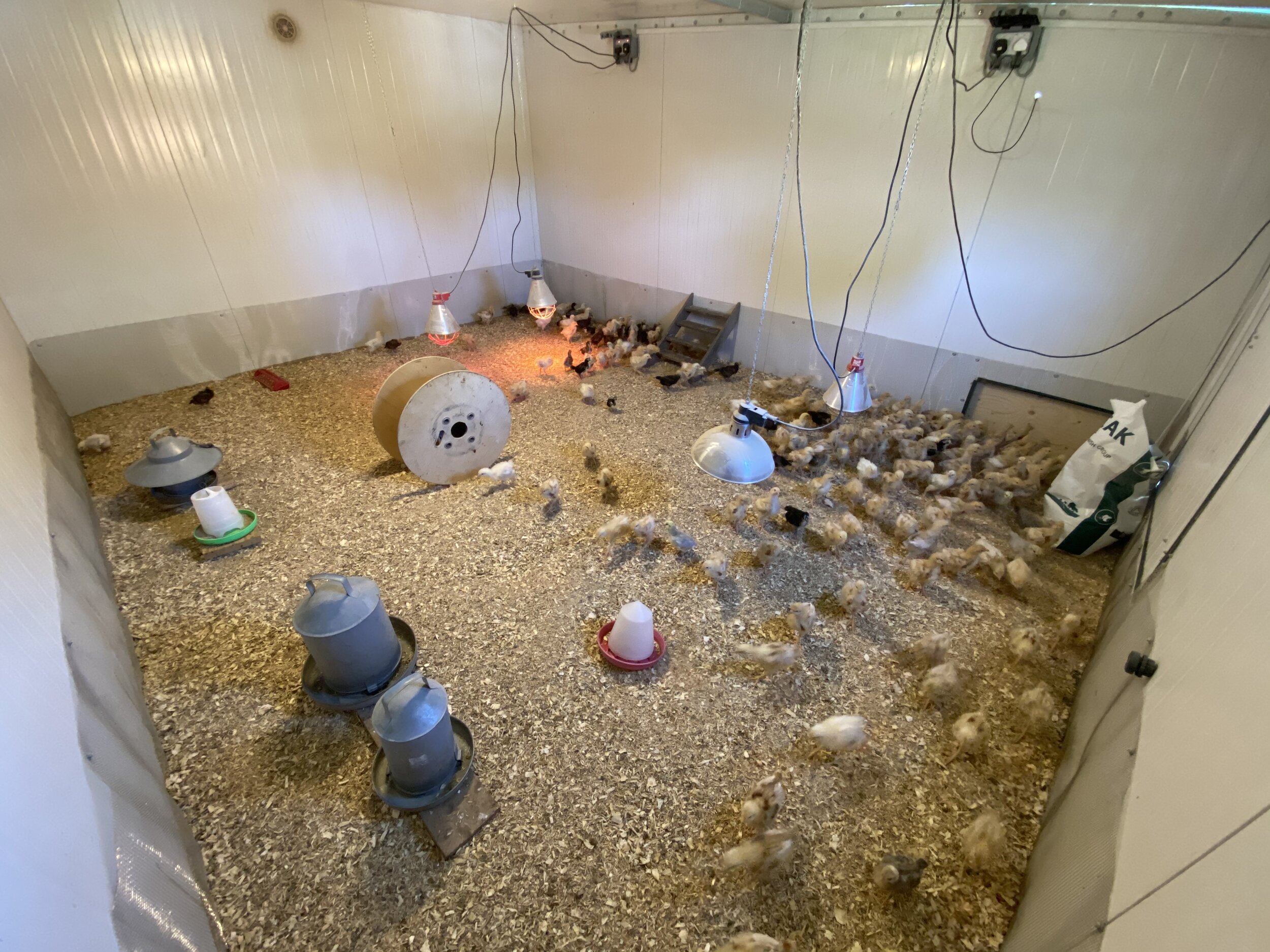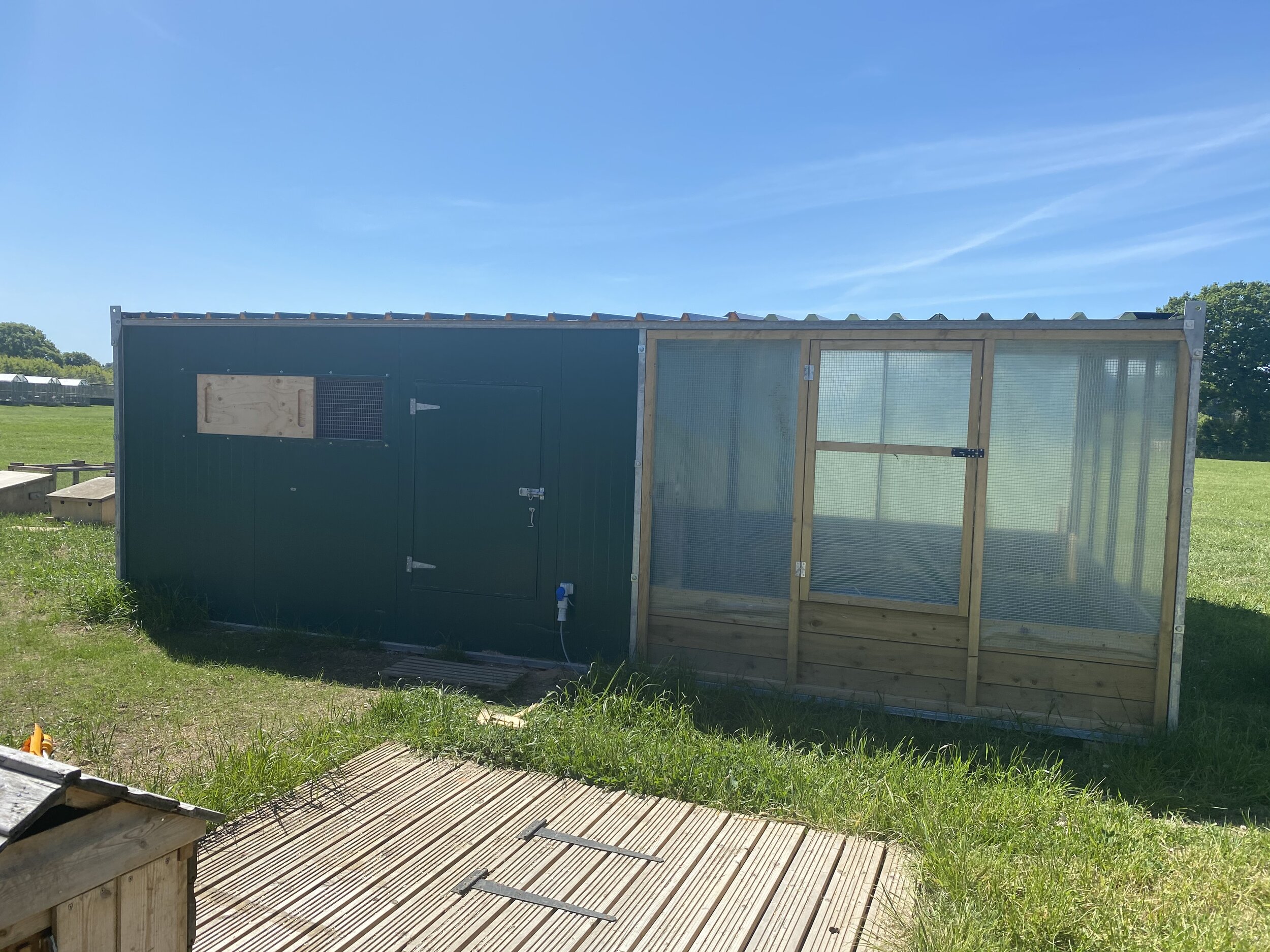The Coronavirus pandemic, although detrimental to some businesses (which must be heartbreaking to close for the foreseeable future) there’s been a massive influx in eating egg orders, hatching egg orders and the purchasing of hens! This is a massive help to our small business and we greatly appreciate the support that we’ve received over the past couple of weeks. Thank you to all of those who’ve considered buying local to support smaller businesses rather than shopping at the supermarket, although, I know sometimes you don’t have a choice with the amount of bare shelving there is. This is the perfect opportunity for our communities to realise the amount of hard work and effort that farmers put in to produce the food on the shelves of the shops. Through this crisis, farmers all over the world are working incredibly hard to meet the increased demand for their products. We’ve actually suspended the purchasing of our hens to allow us to focus on egg production for our local village. We just ask, that when this is over and we’re returning back to normal that you still continue to shop with your local small business and farms!
We read in the ‘The Times’ this morning and article written by Alice Thomson, which is a really good read!
“Hens are becoming as scarce as lavatory rolls as poultry breeders are inundated with requests for live chickens to keep in gardens as egg-laying pets.
Some people are stocking up on seeds online, planning to grow more lettuce and tomatoes in allotments, and window boxes for their neighbours. Others are examining the sell-by dates on ancient tins and packets of flour. Most of us are trying to work out how to get enough food for three meals a day as the country goes into lockdown.
Farmers are going to be crucial in the next few months. There is already a daily run on dairy produce and fresh vegetables that has made NHS staff weep as they gaze at empty shelves, but so far suppliers have kept up with demand. Until now the Spanish have been sending over peas, runner beans and spinach and South America has still been supplying us with avocados. But as imports from stricken countries begin to slow, supermarkets may need to rely on suppliers closer to home or they will find it increasingly hard to re-stock their shelves and the government may have to consider rationing.
Farmers are key workers on the government list but they are rarely mentioned. In some ways they are made for this coronavirus crisis. They are used to working in self-isolation for long periods and good at understanding the implications of infectious disease. They remember foot and mouth in 2001, when millions of cattle were slaughtered, and still have to cope with tuberculosis infections in their herd. But this is going to be a monumental struggle. We’ve already had one of the wettest winters on record, flooding many fields. Now the dairy farmers need to keep enough staff for milking and are reliant on the daily arrival of lorries. Hill farmers are halfway through lambing and don’t know yet whether all the abattoirs or processing factories can stay open. At the same time the fruit and veg farmers are worrying about who is going to pick and pack their produce given that 98% of their workers arrive seasonally from eastern Europe.
Potatoes can be dug up by machine but much of the rest needs hand picking. Asparagus starts soon, then strawberries and other berries, celery, spring onions, apples and pears. They can’t leave it all to rot: the harvest needs to be brought in. Meanwhile supply lines are already in chaos with warehouses full of perishable goods that can no longer go to the hotels, restaurants, pubs or cafes that have all been forced to shut. Many small producers are terrified of going bankrupt.
The government has held emergency talks this week with farmers, supermarkets, wholesalers, suppliers, abattoirs and production factories. The first task has been to re-focus many supplies from the coffee, chick and sandwich chains towards the shops and delivery services. Milk for Costa Coffee lattes, chicken for Nando’s and beef for McDonald’s all now need to go directly to supermarkets and on to their shelves.
Some packaging may soon look bizarre and unrecognisable. But the imperative is to let nothing go to waste and there should be a focus on buying locally to minimise travel.
The government’s other task is to persuade farmers to start sewing and planting, even though they are worried that their produce may rot if the virus is still preventing travel this summer and there is no one to pick it. Ministers are veering towards calling on people to come and help in the fields. Students are the most obvious option as they are already spread out across Britain, may have nothing to do this summer, are relatively fit, less likely to fall ill with the virus and traditionally used to help with harvesting.
Farmers and horticulturalists estimate they need about 50,000 paid volunteers to pick fruit and vegetables. Minette Batters, president of the National Farmers’ Union, told me that they will have to learn new skills as picking is more complex than people realise.
“The Ukrainians, Bulgarians and Romanians are extremely fast, agile and adept pickers,” she says. “Now we’ll need to train up our own workforce to make sure there is food on the shelves and repurpose all our produce for the shops.” John Shropshire, chairman of the international farming business G’s Fresh, needs 3,000 pickers to help harvest vegetables in Cambridgeshire. “You have to be delicate with the produce - Lettuces bruise easily, spring onions are complicated,” he explained. “But it’s a better workout than going to the gym.”
It’s reminiscent of the campaign during the Second World War to “Lend a hand on the land”. Britain’s new land girls and boys may struggle at first to be efficient but it might make for a memorable summer if the sun shines and they can’t go to the beach. By redirecting food and asking students to bring in the harvests we could all eat healthily until the pandemic is over.
The British don’t need to panic buy- we have months of non-perishable items, rice, beans and chocolate on which to survive. One chemist explained to me that most people now have enough paracetamol and viagra to see them through to next year. But we do need a strategy to keep fresh meat, vegetables and fruit on our plates for the weeks to come- until, just as the reappearance of bananas was celebrated at the end of the Second World War, we enjoy a glut of avocados in the shops again.”
















